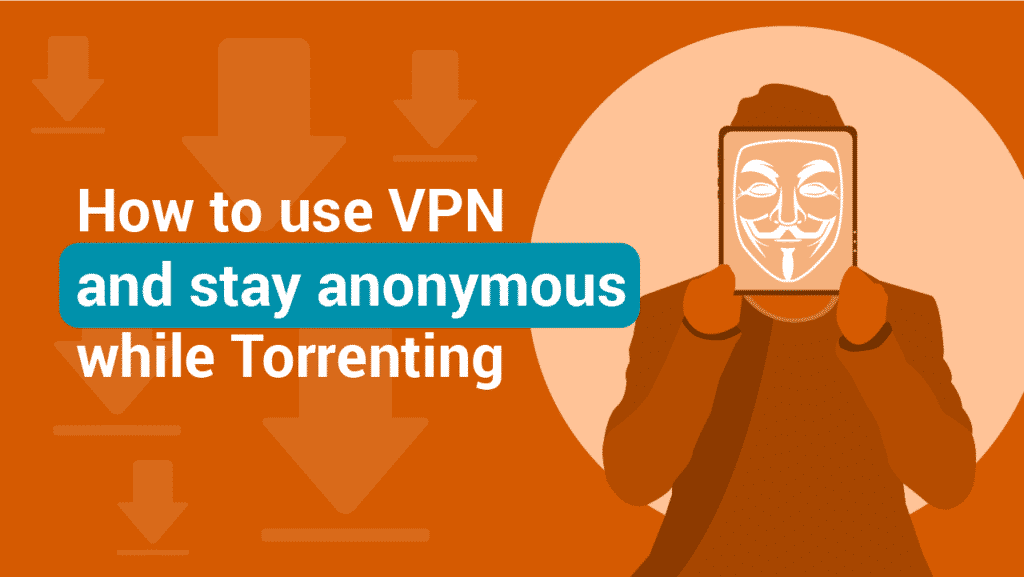How to Use VPNs to Stay Anonymous While Torrenting
With torrenting, you download and upload files across a torrent network. The activity lets you bypass central servers. Instead, you get to a torrent network and download files that other users have uploaded. You could also upload files to a torrent network for others to download.
Every member on a torrent network is known as a “peer.” Collectively, they are known as a “swarm.” A peer can download a file from several other peers at the same time. Conversely, they can upload files to others simultaneously too.
The Privacy Dangers of Torrenting
Here are some of the most prominent risks:
1. ISP Throttling
All of your traffic ideally is open and exposed when you’re on the internet. This means that your internet service provider will be able to see what you’re doing. In some cases, some third parties might be able to spy on your activities as well.
Additionally, Internet Service Providers could report on you. Most of these companies are in league with copyright holders. Since they won’t want to be responsible for piracy, they frown on torrenting. It doesn’t matter whether your torrenting is legal or not. They won’t accept it.
If an ISP discovers that a customer is torrenting, they will most likely send a letter advising the user to stop it. However, if the user doesn’t adhere to that, then they could try bandwidth throttling.
Bandwidth throttling will restrict your internet connection speed. In some cases, the ISP might limit your internet when you try to connect to a torrent client. However, most ISPs restrict every traffic. The ISP could also terminate your internet access entirely if things get too serious.
2. Malware and Viruses
These are perhaps the most prominent threats that you could face. Torrenting commonly attracts viruses and malware, especially if they’re for games and software.
Since you will have to install and execute these software, they could be perfect hiding places for malware. This is why most experts recommend that you run virus scans before you install any torrent.
It would help if you also remembered that your IP address could be visible to other peers on a torrent network. If someone finds it, they could sell your data to hackers or advertisers. In turn, these people could use your data to target you in different ways.
You will need to ensure that you have a system that protects you while you download torrent files.
How VPNs Protect Your Data While Torrenting
A Virtual Private Network (VPN) is perhaps the most significant protection measure you could have while torrenting. It protects you while also ensuring that you can download your content with astonishing speed.
Here’s how a VPN helps you out. First, it reroutes all your traffic through a server in a location that you select. By doing this, the VPN changes your real location to one that is far from you. On its own, this will add an anonymity layer to your activities.
The VPN then encrypts all of the details on your computer that it shares when you connect to the internet. Before your data leaves your computer, the VPN encrypts it. This encryption layer ensures that your ISP won’t be able to spy on your internet activity or your location. The same thing applies to hackers. They will be left out in the cold with no idea what you do with your data. Without any information on you, they can’t spy on your life or sell your data to other hackers and advertisers.
Also, remember that your data goes through the VPN first. So, your ISP won’t even know where you’re browsing from if you use a VPN.
The best VPNs also protect you from malware and viruses. Most of them come with anti-malware and ad-blockers. Using these, the VPNs ensure that you’re entirely safe. If you download any file from a torrent network that has viruses or malware in it, the VPN will alert you and eradicate it immediately.
A Guide to Using VPNs for Torrenting
If you want to use a VPN for torrenting, you will need to know some of the features that it should have. Here are a few you need to consider
- Data Encryption: With encryption, you can go to any part of the internet and rest assured that your data is safe. The top encryption feature is AES 256-bit encryption. It’s so secure; even military personnel use it. Make sure that your provider offers it as well.
- Ad Blocker: You should check for ad blockers. These ensure that you enjoy a seamless internet experience without any pesky ads disturbing your peace.
- Malware Tracker: The most secure VPNs come with malware trackers that notify you if a malicious software or virus is about to infiltrate your device.
- Anonymity Features: DNS leak protection, IPv6 leak protection, and much more are the prominent anonymity features. You also need to check for a no-logs policy, as this ensures that the VPN will not have access to your data.
When you find a VPN with these features, you can download it and turn it on before you go to a torrent website. When you do, you can rest assured that your safety is guaranteed.
Conclusion
VPNs are some of the most secure software options to have when you’re doing anything on the internet. However, they’re even more critical when you’re torrenting because of the activity’s many risks. When you have a VPN, you can log on to any torrenting site and enjoy all of the content you can find. Just make sure it has the facilities to support you.

